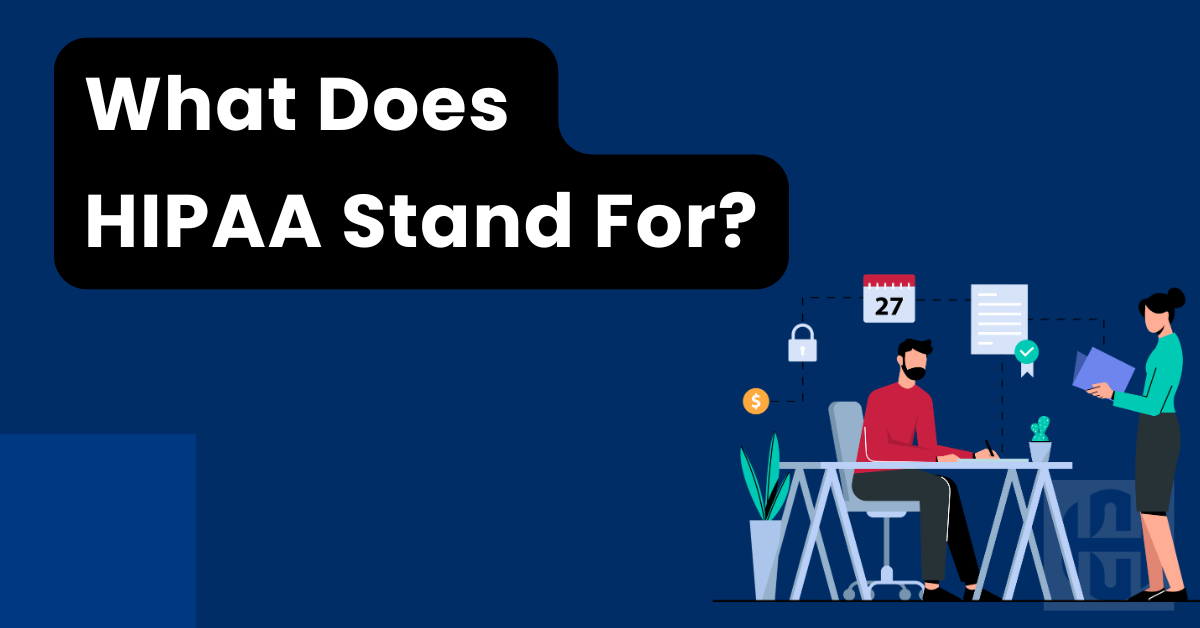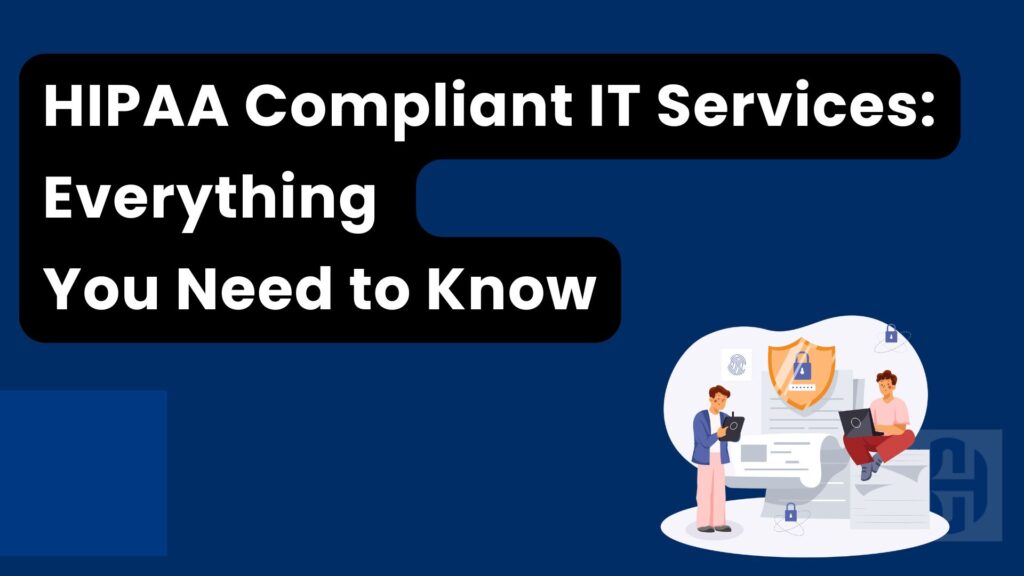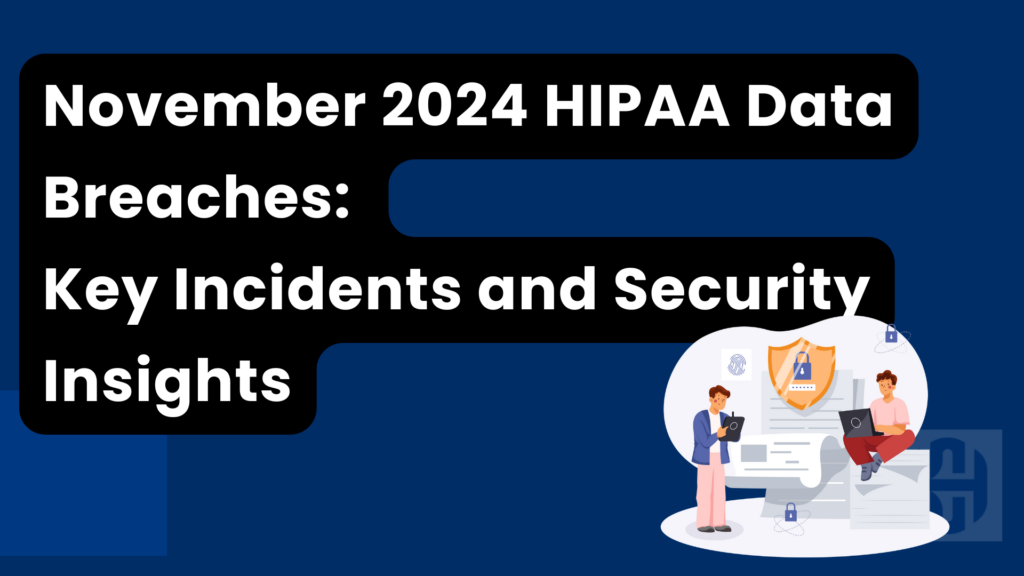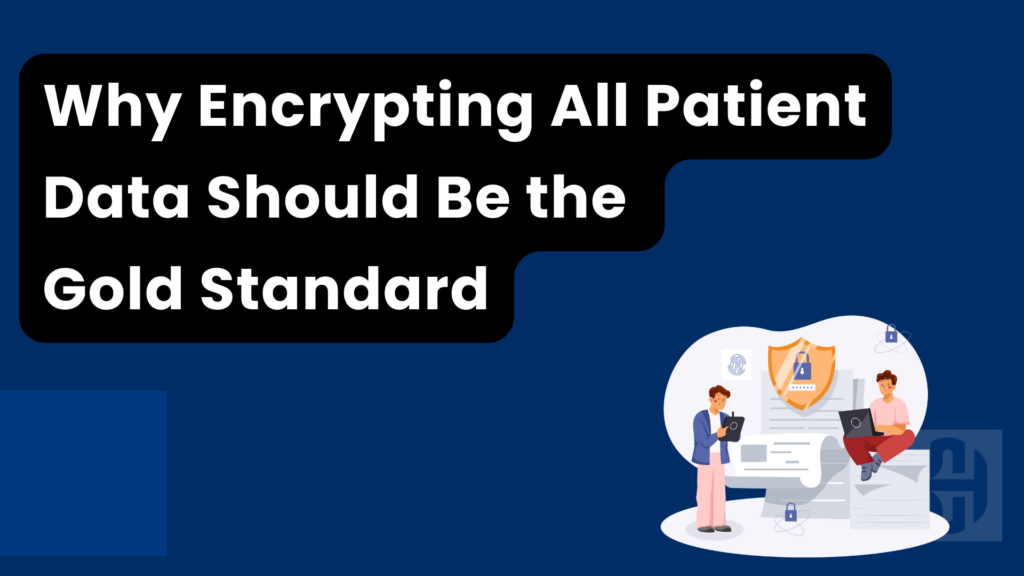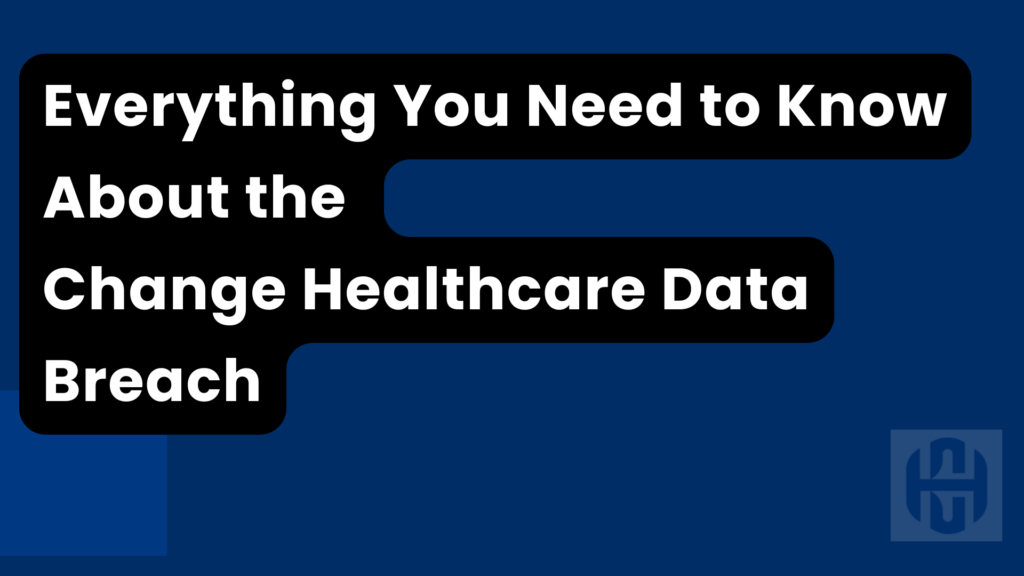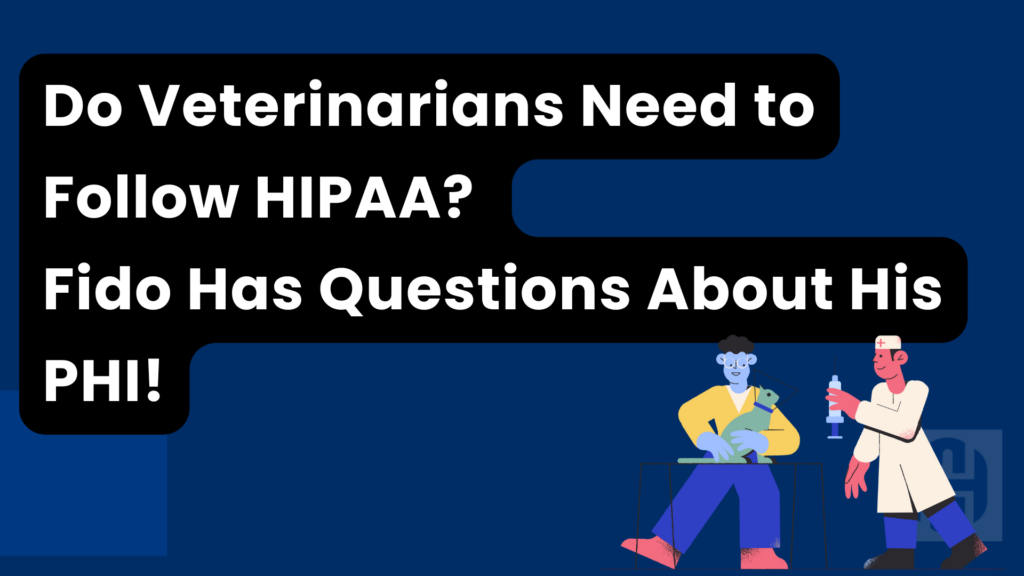Introduction
Have you ever wondered what HIPAA stands for? You might have heard this word at the doctor’s office or seen it on medical forms. Don’t worry if you’re not sure what it means – you’re not alone! In this article, we’ll explain what HIPAA stands for and why it’s so important for everyone who goes to the doctor or uses healthcare services.
What Does HIPAA Stand For?
Let’s start with the big question: what does HIPAA stand for? HIPAA is short for the Health Insurance Portability and Accountability Act. That’s a long name, isn’t it? Let’s break it down to make it easier to understand:
- Health: This law is all about your health and medical information.
- Insurance: It deals with health insurance and how it works.
- Portability: This means being able to take something with you. In this case, it’s about being able to keep your health insurance even if you change jobs.
- Accountability: This is about making sure people follow the rules and do the right thing.
- Act: This is another word for a law.
So, when we ask “What does HIPAA stand for?”, we’re talking about a law that helps protect your health information and makes sure your health insurance works well for you.
According to the U.S. Department of Health & Human Services, HIPAA was enacted in 1996 to improve the efficiency and effectiveness of the health care system 1.
Why is HIPAA Important?
Now that we know what HIPAA stands for, let’s talk about why it’s so important. HIPAA does a lot to help keep your health information safe and private. Here are some reasons why HIPAA matters:
- Protects Your Privacy: HIPAA makes sure that your health information stays private. This means that not just anyone can look at your medical records or know about your health problems.
- Gives You Control: HIPAA gives you the right to see your own health information and ask for changes if something is wrong.
- Keeps Your Information Safe: HIPAA has rules about how doctors, hospitals, and insurance companies should keep your health information safe. This helps prevent your private information from being lost or stolen.
- Helps You Keep Your Insurance: HIPAA makes it easier for you to keep your health insurance even if you change jobs or have health problems.
- Makes Sure Information is Used Correctly: HIPAA has rules about how your health information can be used and shared. This helps make sure it’s only used to help you and not for other reasons.
The National Institutes of Health (NIH) emphasizes that HIPAA is crucial for maintaining the confidentiality of patient information in healthcare settings 2.
The History of HIPAA
To better understand what HIPAA stands for and why it exists, let’s take a quick look at its history:
- HIPAA became a law in 1996. That’s over 25 years ago!
- Before HIPAA, there weren’t many rules about keeping health information private.
- People were worried about losing their health insurance if they changed jobs or got sick.
- HIPAA was created to solve these problems and make healthcare better for everyone.
The Centers for Disease Control and Prevention (CDC) provides a comprehensive timeline of HIPAA’s development and implementation 3.
What Does HIPAA Do?
Now that we know what HIPAA stands for and why it’s important, let’s look at some of the things it does:
1. Protects Your Health Information
One of the main things HIPAA does is protect your health information. But what exactly does this mean? Here are some examples:
- Your doctor can’t tell other people about your health problems without your permission.
- The hospital has to keep your medical records safe and secure.
- Your health insurance company can’t share your information with your employer.
Remember, when we ask “What does HIPAA stand for?”, we’re talking about a law that keeps your health information private and secure.
2. Gives You Rights
HIPAA also gives you important rights when it comes to your health information:
- You have the right to see your medical records.
- You can ask for changes to your health information if you think something is wrong.
- You can find out who has looked at your health information.
- You can choose if you want to share your health information with certain people or companies.
These rights help you stay in control of your own health information.
3. Sets Rules for Healthcare Providers
HIPAA sets rules that doctors, hospitals, and other healthcare providers must follow:
- They need to have ways to keep your health information safe.
- They have to train their workers about HIPAA and privacy.
- They can only share your health information in certain situations, like when they need to treat you or when you say it’s okay.
These rules help make sure that everyone who handles your health information is doing it the right way.
4. Helps with Health Insurance
Remember, when we ask “What does HIPAA stand for?”, part of the answer is about health insurance. HIPAA helps with health insurance in a few ways:
- It makes it easier to keep your health insurance when you change jobs.
- It protects you from losing your insurance if you get sick.
- It sets rules for how health insurance companies can use your information.
This part of HIPAA helps make sure you can get and keep the health insurance you need.
The Office for Civil Rights (OCR) at the U.S. Department of Health and Human Services provides detailed information about HIPAA’s Privacy Rule and its implications for healthcare providers and patients 4.

Who Does HIPAA Apply To?
HIPAA applies to many different people and organizations. These include:
- Doctors and Nurses: The people who take care of you when you’re sick or hurt.
- Hospitals and Clinics: The places where you go to get medical care.
- Health Insurance Companies: The companies that help pay for your healthcare.
- Pharmacies: The places where you get your medicine.
- Labs: The places that do medical tests.
- Dentists: The doctors who take care of your teeth.
- Mental Health Providers: The doctors who help with your mental health.
All of these people and places have to follow HIPAA rules to keep your health information safe and private.
The American Medical Association (AMA) provides resources to help healthcare providers understand and comply with HIPAA regulations 5.
What Information Does HIPAA Protect?
When we talk about what HIPAA stands for, we’re also talking about what kind of information it protects. HIPAA protects what’s called “Protected Health Information” or PHI. This includes:
- Your name, address, and birth date
- Your medical records
- Information about your health problems
- Details about your medical treatments
- Your health insurance information
- Lab test results
- X-rays and other medical images
- Billing information for your healthcare
Basically, HIPAA protects any information about your health or healthcare that could be used to identify you.
How Does HIPAA Protect Your Information?
Now that we know what HIPAA stands for and what information it protects, let’s look at how it keeps your information safe:
- Limited Access: Only people who need to see your health information for your care or for billing can access it.
- Security Measures: Hospitals and doctors’ offices have to use things like passwords and special computer programs to keep your information safe.
- Training: People who work with health information have to learn about HIPAA and how to protect your privacy.
- Rules for Sharing: There are strict rules about when and how your health information can be shared.
- Your Permission: In many cases, your doctor or hospital needs to get your okay before sharing your information.
- Penalties: There are punishments for people or organizations that don’t follow HIPAA rules.
All of these things work together to keep your health information private and secure.
The National Institute of Standards and Technology (NIST) provides guidelines for implementing the HIPAA Security Rule to protect electronic health information 6.
What Happens If Someone Doesn't Follow HIPAA Rules?
It’s important to know what happens if someone doesn’t follow the rules when we talk about what HIPAA stands for. There can be serious consequences:
- The person or organization might have to pay a fine. These fines can be very big – sometimes millions of dollars!
- They might have to change how they do things to make sure they follow the rules in the future.
- In very serious cases, people might even go to jail for not following HIPAA rules.
These consequences help make sure that everyone takes HIPAA seriously and protects your health information.
The U.S. Department of Health & Human Services provides information on HIPAA enforcement and penalties for non-compliance 7.
How HIPAA Affects You
Now that we understand what HIPAA stands for and what it does, let’s talk about how it affects you in your everyday life:
- At the Doctor’s Office: When you go to the doctor, you might be asked to sign a form about HIPAA. This form tells you about your rights and how your information will be protected.
- Getting Your Medical Records: If you want to see your medical records, you can ask for them. HIPAA gives you the right to see and get copies of your health information.
- Talking to Family Members: Your doctor will usually need your permission to talk to your family members about your health, unless it’s an emergency.
- At the Pharmacy: The pharmacist can’t tell other people what medicines you’re taking without your permission.
- With Your Health Insurance: Your health insurance company has to be careful about how they use your health information and who they share it with.
- Online Health Information: If you use websites or apps to track your health, make sure they follow HIPAA rules to keep your information safe.
Remember, HIPAA is all about protecting your health information and giving you control over who can see it and how it’s used.
Common Questions About HIPAA
People often have questions about what HIPAA stands for and how it works. Here are some common questions and their answers:
Generally, no. Your employer doesn’t have the right to see your health information without your permission.
Yes, HIPAA gives you the right to ask for a list of who has accessed your health information.
If you think someone hasn’t followed HIPAA rules, you can file a complaint with the U.S. Department of Health and Human Services.
HIPAA applies to health information held by healthcare providers, insurance companies, and related businesses. It doesn’t apply to health information you might share on social media or with friends.
Yes, your doctor can share your health information with other doctors who are treating you. This helps make sure you get the best care possible.
For more detailed answers to HIPAA-related questions, you can refer to the FAQs provided by the U.S. Department of Health & Human Services 8.
Conclusion
Now you know what HIPAA stands for: the Health Insurance Portability and Accountability Act. But more importantly, you understand that HIPAA is all about protecting your health information and giving you rights when it comes to your healthcare.
HIPAA helps keep your medical information private, gives you control over your health data, and makes sure that your health information is used properly. It sets rules for doctors, hospitals, and insurance companies to follow, and it gives you important rights.
Remember, HIPAA is there to protect you and your health information. It’s an important law that helps make sure your private medical information stays private. The next time you hear someone ask, “What does HIPAA stand for?”, you’ll know the answer – and you’ll understand why it’s so important for everyone who uses healthcare services.
By understanding what HIPAA stands for and how it works, you can better protect your rights and make informed decisions about your healthcare and your personal health information. Stay informed, ask questions, and don’t be afraid to speak up if you think your HIPAA rights aren’t being respected. Your health information is important, and HIPAA is there to help keep it safe and secure.
Are you a healthcare provider or business associate looking to ensure your organization is fully compliant with HIPAA regulations? HIPAA Certify offers comprehensive training and certification programs to help you understand and implement HIPAA requirements effectively. Don’t risk costly penalties or data breaches – get certified today! Visit HIPAA Certify’s website to learn more about our programs and take the first step towards full HIPAA compliance.
References
[1] U.S. Department of Health & Human Services. “HIPAA for Professionals.” https://www.hhs.gov/hipaa/for-professionals/privacy/laws-regulations/index.html
[2] National Institutes of Health. “HIPAA Privacy Rule.” https://privacyruleandresearch.nih.gov/pr_02.asp
[3] Centers for Disease Control and Prevention. “Health Insurance Portability and Accountability Act of 1996 (HIPAA).” https://www.cdc.gov/phlp/publications/topic/hipaa.html
[4] U.S. Department of Health & Human Services. “Privacy.” https://www.hhs.gov/hipaa/for-professionals/privacy/index.html
[5] American Medical Association. “HIPAA compliance.” https://www.ama-assn.org/practice-management/hipaa
[6] National Institute of Standards and Technology. “An Introductory Resource Guide for Implementing the Health Insurance Portability and Accountability Act (HIPAA) Security Rule.” https://www.nist.gov/publications/introductory-resource-guide-implementing-health-insurance-portability-and-accountability
[7] U.S. Department of Health & Human Services. “Enforcement Process.” https://www.hhs.gov/hipaa/for-professionals/compliance-enforcement/index.html
[8] U.S. Department of Health & Human Services. “HIPAA FAQs for Individuals.” https://www.hhs.gov/hipaa/for-individuals/faq/index.html
